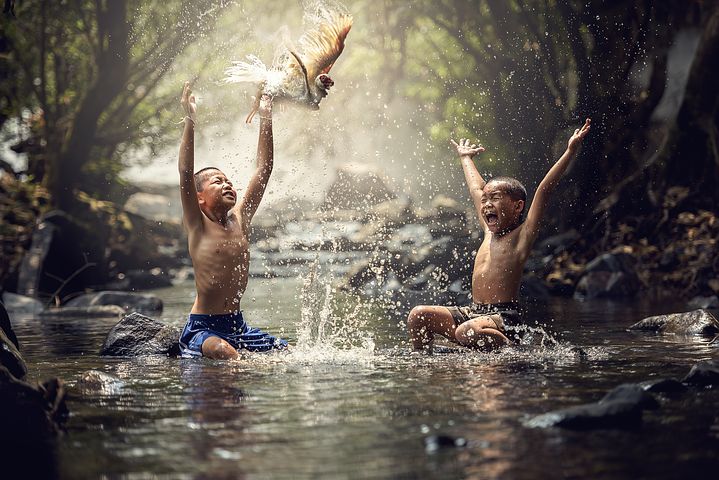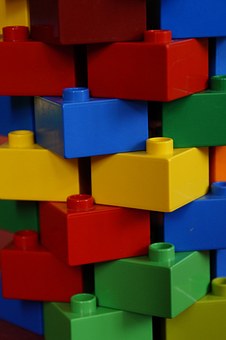Why You Can’t Be Your Child’s Best Friend
 Not a Best Friend
Not a Best Friend
You might become the best friend of your offspring once he or she is grown, but you can’t be your child’s best friend. That’s because you’re the parent. A coach can’t be the best friend of one of his players. And, just like a teacher can’t be a student’s best friend, so a parent cannot be his child’s best friend. It’s that simple – and that hard.
That’s hard to imagine when you bring you first baby home from the hospital. He’s already got you wrapped around his finger, and his dependance for life falls on you, but it’s true. Sometimes it’s hard.
You know something? It doesn’t have to be that hard. The problem is we want the fuzzies of thinking we are the best and that our love for our child will make her want to love us back as her best friend. The other problem is that we can’t be the best friend of someone we are in charge of or in authority over. We can’t have it both ways.
 Certainly, when our children are small, we are their everything. They think we hung the sun and the moon, and they are certain we can do no wrong. We might be their best person, their favorite person, their security and their sustenance – but that’s different than being their best friend.
Certainly, when our children are small, we are their everything. They think we hung the sun and the moon, and they are certain we can do no wrong. We might be their best person, their favorite person, their security and their sustenance – but that’s different than being their best friend.
When a child reaches the age he discovers that mom or dad isn’t perfect, that’s when the shift changes. We are no longer his idol, his favorite, or his bestie all of the time. Sure, he needs our help for sustenance. Yet now, he needs to know that his parents are not – and cannot be – all things to all their kids (which includes being best friends).
Earning Respect Without Being a Best Friend
Back in the day when (most of) our grandparents were raising kids, they didn’t worry about being a favorite of their child. They didn’t try to cajole their kids into doing what they wanted them to do. They expected and acted on their expectations. Because of the way they raised their kids, there was respect even when there was disgruntlement.
Today, our kids feel entitled to get what they want, to play more than work, and to have plenty of help doing what they are perfectly capable of doing themselves. Because we want to be their friend, we end up helping them and pinch-hitting for them. Instead of endearing ourselves to them, we end up losing their respect. Oh, they’ll still love us and tell us they love us – but the respect is no longer there.
The problem is that we want our child to love us, to like us, and to trust us. We also want him to obey us and follow our “rules.” He can’t do that if you’re his best friend. Friends don’t require obedience of each other. Friends don’t provide consequences, and friends commiserate with you about other adults in your life. That’s why you can’t be your child’s best friend.
Sometimes you can be your child’s friend – and most of the time, you probably are. But you can’t be his best friend, so don’t even try. When he or she is an adult, yes. When he is a child? Nope. Never happen.
Being the Parent Instead of the Friend
There’s enough work involved in being the parent, so hang in there and be the parent. This means not going to bat for him when he can handle things himself. It means he knows we mean what we say because we follow through instead of caving. Being the parent means the buck stops here and doesn’t change because a child pouts or whine. Nor does where the buck stops change because a child tells his parent, “You’re so mean!” or “I don’t love you!”.
You can be a friend and befriend your child, but you can’t be his best friend when you’re parenting him.
How to Make it Easier
You know what makes parenting easier? Sticking to your guns. Refusing to cave when a child nixes you as his friend. Aiming for the right outcome by not succumbing today. Being the parent and not the friend – that’s what makes parenting easier. Try it. You’ll see.
You just really can’t be your child’s best friend and be his parent, too. You don’t need to tell me how hard this is. I know. I’ve experienced this not only with my own bred-born-and-raised-kids. I’ve experienced it with foster kids, too. You think I don’t know? You bet I do. You think I think it’s a piece of cake? Hardly.
I’ve sweated it out in the trenches – and some days I still do. I know whereof I speak, and I know how hard it is. You know what I also know? The results – adult kids who are responsible. That’s what I know.
You know what else I know? I know that when you’re parenting a child, you simply cannot be his best friend.









That’s it? Nothing else?? No helpful advise in particular situations? Or an outline of what the process looks like and how the child reacts to that process?
Hi, Thanks for dropping in. I did not spell out specific steps, but the article says some things that are specific. 1. Expect your child to do what is asked and act on those expectations [consequences for not obeying, for example.] 2.Don’t help your kids do what they can do; don’t pinch-hit for them because they don’t want to do something they are capable of doing. 3. Provide consequences when your child deliberately pokes. 4.When your child tries to get you to give in by telling you that you are mean or unfair, DON’T give in. Stand your ground. 5.Remember that you are always the parent, so act like the adult, the parent. That means you are in charge. You set the rules and the consequences and then you must follow through.
Does this help?
(It would be interesting to do an article with “follow through” but our kids and circumstances are so different) These things I have outlined above and that are in the article work for any parent.